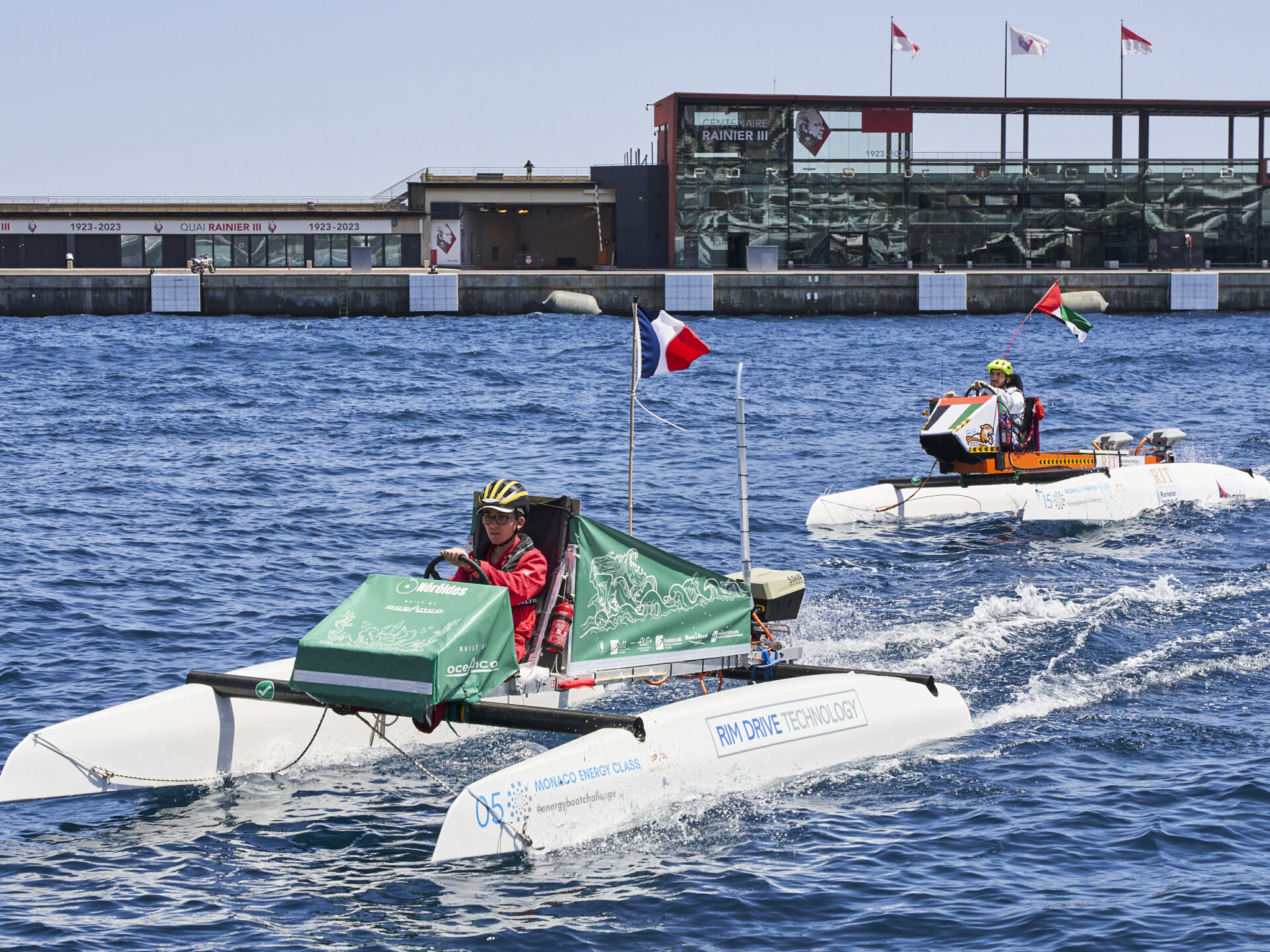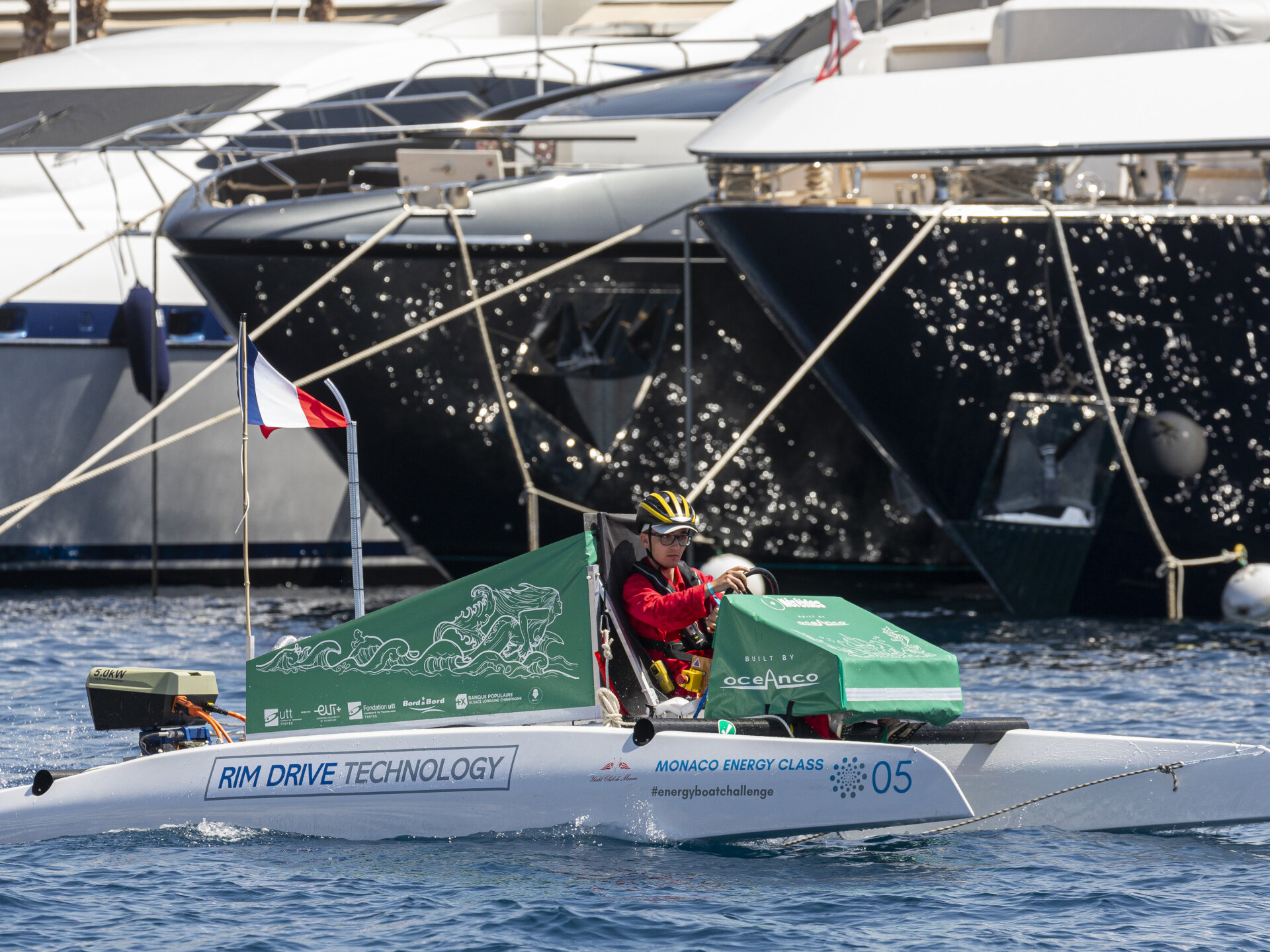“It brings them so much”: The Story of a Student-led Team’s Fuel Cell Boat

One of the most interesting use-cases of Horizon’s Fuel Cell Stacks are student-led teams competing in energy competitions or races. Students use our fuel cells in self-built race cars, boats or even airplanes capable of travelling the longest distance using the least amount of hydrogen fuel, such as in the Shell Eco-marathon. By doing this, they learn about engineering for energy efficiency as well as working in a team, with sponsors providing funding seeking to develop a pipeline of future talent.
One of the competitions where Horizon fuel cells are used is the yearly Monaco Energy Boat Challenge run by the Yacht Club of Monaco. Here Team Nereides from the University of Technology of Troyes (UTT) use a Horizon 1000 XP fuel cell stack to power their self-built hydrogen boat. Optimized for energy efficiency in racing conditions, the Horizon 1000 XP has the perfect balance of weight, size and energy output – and its hydrogen purging frequency and duration are significantly reduced.
We were lucky enough to catch up with Léna Haouas who oversees communications for Team Nereides. Léna gave us an overview of how Team Nereides operate and what they hope to achieve this year. Read the full interview below:
So, Lena, could you tell us a little bit about how you are using the Horizon 1000 XP?
We’re competing in the Monaco Energy Boat Challenge. It's a competition that takes place in Monaco, organized by the Yacht Club of Monaco. The aim of the competition is for students from all over the world to build their own boats that must be eco-friendly and then to compete and race. During this competition, we can win prizes. There’re prizes for best innovation, prizes concerning the communication for each team, which team has communicated the best.
We went to the competition last year with only 12 students. Now we’re doing it again with 27 students.
Every member of the team have different responsibilities, so it’s great for learning how to work as part of a group. One member of our team is focused on the safety of the boat. Two more students are in the hydrogen team, two more students in the cockpit team. This year we’re building a completely new hydrogen-powered boat, so our teamwork skills are really being developed.


Did you have to make any changes from last year regarding the boat?
The competition demands that we need to build our own cockpits. We actually did this from recycling materials – we salvaged an entire glider that used to be used for flying. This glider, it crashed about five or ten years ago, and it will be the cockpit of our boat. So in this way, we won't pollute by building something again, but we’re recycling materials. Also, the other thing that we will be doing this year is that we have decided to build our own motor. The transmission in the motor, we manufactured the pieces that will compose the transmission. We designed the pieces ourselves and this means they’re not only cost-free, but we are able to decide the the type of performance that we would like for the race, contrary to last year.
What so far has been the biggest challenge of making this boat and this whole project so far?
I would say the most difficult part is that we have many teams that are working on the project simultaneously. We have a team of embedded systems, the hydrogen team, the cockpit team, the propulsion team. All of these teams are doing their own part of the project. But the difficult thing about that is that each team needs the information of other teams to work and to advance on the project. But sometimes, because we don't have a lot of funding, some teams don't have the answers that other teams would need to continue on their own work. So that was a challenge at the beginning of the year because some teams couldn't do any work because others didn’t have their answers.
An example of this: one team was not sure how many bottles of hydrogen they would use. This blocks the cockpit part because that team is focusing on how everything is going to be placed in the boat. If we don't know how many bottles there would be, the cockpit team cannot be sure about how they are going to place everything in the boat.

My next question would be about future careers. In terms of building your skills for a future career, what do you think are the benefits that you have gained from the hydrogen boat?
Personally, I'm working on the communication, so I would say that I have learned how to organize teamwork, how to also manage a team. I was introduced to scheduling and public relations, organizing some events in the school, but also outside. For example, when the boat will be ready, we will organize the launching of the boat on a canal in the city of Troyes. We’ll have to call the mayor, the region, the department. We will have to call the companies that have sponsored us, all of our sponsors. So I’ve been personally prepared for working in a field like public relations.
But on a technical point, I would say that the other members of the team, it brings them so much. In school, we focus a lot on theory so working on a project like Néréides gives us technical knowledge and experience that we wouldn't have been able to acquire as mere students. Seeing how the Horizon 1000 XP hydrogen fuel cell works in real life, it's a really cool opportunity.
What is the single biggest factor that would help you on your mission to in the Monaco Energy Boat Challenge?
We are looking for partnerships. We’re not only promoting the boat and our participation in the race, but we are doing actions also to share our knowledge of future engineers to a younger public. We’re going to high schools of the city to showcase to them our project, but also to explain how our boat works and to show them that they can become an engineer too. So we are spending time with them by presenting them our boat to encourage them to choose these type of careers.
The project is called Les cordées de la réussite. The aim of this project is really to go and meet younger students and to talk with them.
So when a sponsor agrees to help us with the cost of building this hydrogen boat, they’re also giving back to the community in so many other ways.
Sponsors interested in supporting Team Nereides can contact [obfuscate_1_|107|97|101|103|44|97|104|101|116|108|99|116|64|112|114|114|46|102|109]
The Fuel Cell Shop Team

